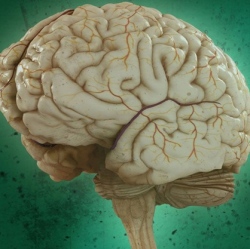
For the first time, doctors have opened and closed the brain’s protector, the blood-brain barrier, on demand. The breakthrough will allow drugs to reach diseased areas of the brain that are otherwise out of bounds. Ultimately, it could make it easier to treat conditions such as Alzheimer’s and brain cancer.
The blood-brain barrier (BBB) is a sheath of cells that wraps around blood vessels (in black) throughout the brain. It protects precious brain tissue from toxins in the bloodstream, but it is a major obstacle for treating brain disorders because it also blocks the passage of drugs.
Several teams have opened the barrier in animals to sneak drugs through. Now Michael Canney at Paris-based medical start-up CarThera, and his colleagues have managed it in people using an ultrasound brain implant and an injection of microbubbles. When ultrasound waves meet microbubbles in the blood, they make the bubbles vibrate. This pushes apart the cells of the BBB.
With surgeon Alexandre Carpentier at Pitié-Salpêtrière Hospital in Paris, Canney tested the approach in people with a recurrence of glioblastoma, the most aggressive type of brain tumour. People with this cancer have surgery to remove the tumours and then chemotherapy drugs, such as Carboplatin, are used to try to kill any remaining tumour cells. Tumours make the BBB leaky, allowing in a tiny amount of chemo drugs: if more could get through, their impact would be greater, says Canney.
The team tested the idea on four patients by implanting an ultrasound transducer through a hole already made in their skulls during tumour-removal surgery. They were then given an injection of microbubbles and had the transducer switched on for 2 minutes. This sent low-intensity pulses of ultrasound into a region of the brain measuring 1 centimetre by 5 centimetres. Canney reckons this makes the BBB in this region more permeable for about 6 hours. In this time window, each person received normal chemotherapy.
